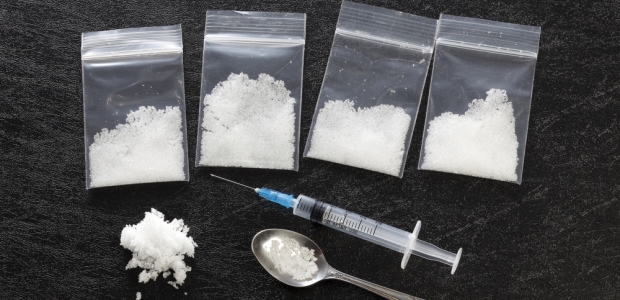
DoD Expands Drug Testing of Recruits
The revised policy allows applicants who test positive to reapply after 90 days if the particular service allows it, but an individual who tests positive on the second test, regardless of drug type, is permanently disqualified from military service.
Effective April 3, drug testing done of all applicants for military service is expanding to include the same 26-drug panel used for active military members, the Defense Department's director of drug testing and program policy, Army Col. Tom Martin, announced.
DoD News reported that this change "is due to the level of illicit and prescription medication abuse among civilians, as well as the increase in heroin and synthetic drug use within the civilian population." Currently, military applicants are tested for marijuana, cocaine, amphetamines (including methamphetamine), and designer amphetamines such as MDMA and MDA.
The expanded testing will include those drugs and also heroin, codeine, morphine, hydrocodone, oxycodone, hydromorphone, oxymorphone, and some synthetic cannabinoids and benzodiazepine sedatives. All military applicants, including recruits entering through military entrance processing stations and appointees to the service academies, incoming members of the ROTC, and officer candidates undergoing initial training in an enlisted status, will be tested this way.
The report said current military members are subject to random drug testing up to three times a year, and this brings applicants for service to the same level of testing. "Military applicants currently are tested on a small subset of drugs that military members are tested on," Martin said. "Applicants need to be aware of the standard we hold our service members to when they join the service."
Approximately 279,400 applicants are processed for entry into military service each year, with roughly 2,400 of them testing positive for drugs, Martin said, adding that about 450 additional people are expected to test positive because of the expanded testing. The revised policy allows applicants who test positive to reapply after 90 days if the particular service allows it, but an individual who tests positive on the second test, regardless of drug type, is permanently disqualified from military service. He said the services have the discretion to apply stricter measures and can disqualify someone after one positive test.
Meanwhile, the National Safety Council released the results of a survey that found more than 70 percent of U.S. employers are feeling a direct impact of prescription drug misuse in their workplaces, and that while 71 percent of employers agree prescription drug misuse is a disease that requires treatment, 65 percent feel it is a justifiable reason to fire an employee. "Employers must understand that the most dangerously misused drug today may be sitting in employees' medicine cabinets," said NSC President and CEO Deborah A.P. Hersman. "Even when they are taken as prescribed, prescription drugs and opioids can impair workers and create hazards on the job. We hope these findings prompt employers to take the lead on this emerging issue so that workplaces can be as safe as possible."
The survey found that only 13 percent of employers are "very confident" that employees can spot the signs of misuse, and 76 percent do not offer training to help close this knowledge gap. In addition, it found only 57 percent are drug testing all employees and, among employers who conduct drug testing, 41 percent are not testing for synthetic opioids.